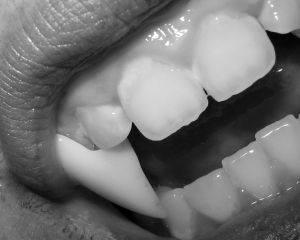 Last month I spoke in Freeport at a seminar for lawyers on the topic of defending OUI cases in Maine. Part of the lecture I gave concerned a 2013 United States Supreme Court case called Missouri v. McNeely, 133 S.Ct. 1552. McNeely is a Fourth Amendment search warrant case dealing with nonconsensual blood testing in drunk-driving cases.
Last month I spoke in Freeport at a seminar for lawyers on the topic of defending OUI cases in Maine. Part of the lecture I gave concerned a 2013 United States Supreme Court case called Missouri v. McNeely, 133 S.Ct. 1552. McNeely is a Fourth Amendment search warrant case dealing with nonconsensual blood testing in drunk-driving cases.
Tyler McNeely was stopped by a state trooper for speeding and crossing the centerline. After performing poorly on the Standardized Field Sobriety Tests, he declined a portable breath test and was arrested for OUI. At the station, he refused to take a breath test and was subsequently transported to the hospital for a blood draw. He did not consent to have his blood drawn, nor did the officer attempt to secure a search warrant. Nevertheless, his blood was subsequently drawn, which alleged a high blood alcohol content.
I will save you the procedural history, but it’s safe to say that on appeal, the Missouri state prosecutors went for a broad, sweeping rule of law that would allow police officers to draw blood under any circumstance, without a warrant or without the consent of the person arrested. They refused to try finding a middle ground; they wanted it all their way.
 By: Attorney Vincent S. LoConte
By: Attorney Vincent S. LoConte Southern Maine Criminal Lawyer Blog
Southern Maine Criminal Lawyer Blog Last month I spoke in Freeport at a seminar for lawyers on the topic of defending OUI cases in Maine. Part of the lecture I gave concerned a 2013 United States Supreme Court case called Missouri v. McNeely, 133 S.Ct. 1552. McNeely is a Fourth Amendment search warrant case dealing with nonconsensual blood testing in drunk-driving cases.
Last month I spoke in Freeport at a seminar for lawyers on the topic of defending OUI cases in Maine. Part of the lecture I gave concerned a 2013 United States Supreme Court case called Missouri v. McNeely, 133 S.Ct. 1552. McNeely is a Fourth Amendment search warrant case dealing with nonconsensual blood testing in drunk-driving cases. The 4th Amendment has been resuscitated!! Hopefully you recall back in September of 2010, I wrote about GPS tracking devices and a recent decision from the District of Columbia Circuit (“GPS Tracking Devices – A Warrant or Not A Warrant – That is Now the Question”). Well, on Monday we got our answer; kind of….
The 4th Amendment has been resuscitated!! Hopefully you recall back in September of 2010, I wrote about GPS tracking devices and a recent decision from the District of Columbia Circuit (“GPS Tracking Devices – A Warrant or Not A Warrant – That is Now the Question”). Well, on Monday we got our answer; kind of….